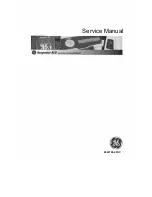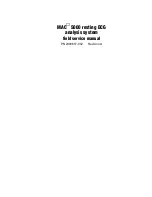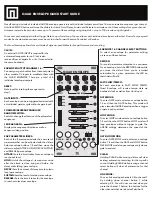Summary of Contents for Synergy H1
Page 1: ...Hybrid Multi Mode Microplate Reader Synergy H1 TM Operator s Manual ...
Page 2: ......
Page 26: ...BioTek Instruments Inc xxiv Preface ...
Page 54: ...BioTek Instruments Inc 28 Chapter 2 Installation ...
Page 68: ...BioTek Instruments Inc 42 Chapter 3 Getting Started ...
Page 132: ...BioTek Instruments Inc 106 Chapter 7 Instrument Qualification Process ...

















































